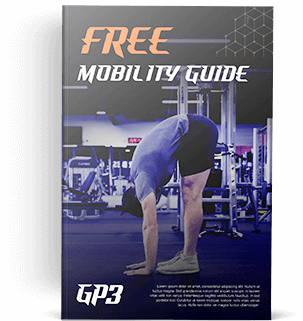Key Points:
1. We tend to use the consumption of sweet treats as a reward for everything, starting at a young age.
2. There’s nothing inherently wrong with this, if we’re intentional about it.
3. But, most of us aren’t, and so we relinquish control of our choices and actions to food. Luckily, there are strategies we can use to overcome this!
Estimated Reading Time: 3-6 Minutes
A few weeks ago, I saw a short clip of a podcast from an influential figure in the fitness world, someone I generally consider a force for good in the industry. He and his guest were discussing the “sweet tooth tendency,” and questioning those who say they “need something sweet.” This is absolutely a belief worth examining, because too many people casually say this about themselves without any thought about the implications. We’re going to explore this in much more detail. But first…
“You’re not a child.”
The podcast host said the following, “Why do you need something sweet? You’re not a child.” Images of popsicles, candy, and cookies popped on screen, and he then went on to promote the benefits of eating foods with more savory flavors, especially ones that are higher in protein and fat content. I mostly agreed with the latter portion of everything he said, but the “You’re not a child,” comment rubbed me the wrong way.
This wasn’t because I felt he had any particular malicious intent behind it, but rather because he didn’t question a potentially harmful assumption.
Why would a child “need something sweet?”
Perhaps need is a strong word, and we should really be asking why a child would want or would expect something sweet, but the point stands. I’ve long believed that until children reach the age where they can drive and work a job, their nutritional habits are 95-100% the parents’ responsibility.
So, to reverse the words of the sadly not-immortal Uncle Ben, “With great responsibility comes great power.” This power is one to shape children’s nutritional habits and reward structures for decades to come. When we automatically reward or comfort children with cookies, cake, donuts, and the like, we can inadvertently lead them to an association that can potentially last their entire lives. Unsurprisingly, this association will endure until we decide to examine or question it.
As a society, we use sweets as a reward all the time
This is a habit we’ve been conditioned into from our first birthday. How do we celebrate getting a year older? Cake and ice cream! We may be given candy or other treats for doing chores, getting good grades, being generally well-behaved when guests come to visit, or having a great game in our sport of choice. The list goes on.
So, we start to associate sweet treats as something either owed to us, or the only logical way to celebrate. We also implicitly learn that eating these foods is enjoyable. So enjoyable, in fact, that it can allow us to avoid less desirable feelings. Perhaps we “need” something sweet at the end of a long day because our job really sucks. But, instead of sitting with the discomfort of that realization (or meditating on it), we push those feelings aside with a few scoops of ice cream.
Now, we shouldn’t feel bad about this. It’s an incredibly effective strategy in the moment. It’s also much easier than admitting and coming to terms with the reality of an unsatisfying job, facing the fear of quitting and finding a new one, and going through the steps of actually looking. Sometimes, grabbing a handful of cookies is the best we can do that day. Is it ultimately more harmful than helpful? Maybe. But, it’s at least understandable.
Before I come across as “holier than thou…”
I want to back up for a minute and make something clear. I love sweets. This is despite “high fructose corn syrup” being the equivalent of a swear word in my house growing up. Sweet tooth tendencies can develop regardless of how much sugar you consumed as a child.
And to clarify, I’m definitely not saying that we should never eat sweet treats. In general, I think people who claim they never eat sugar are either misinformed or lying. My views fall as far from the anti-sugar, anti-carbs crowd as you can get. Remember, I once lost about 20 pounds eating nothing but fast food. During this nutritional experiment, there were even days when I consumed most or all of my calories from Bosa Donuts and ice cream.
And that was before I worked in a gym that’s a 15-second walk from Crumbl Cookies! As a bit of trivia, apparently once their “served warm” cookies have been out of the oven for two hours, they can no longer be sold. So, earlier this year, there was a glorious 2-month period where Crumbl employees dropped off roughly two dozen unsellable but still extremely edible and delicious cookies to the gym…each week.
I unashamedly indulged nearly every day, to the point where I started doing some mental math. “What percentage of my weekly calories is it reasonable to assign to giant cookies? Five percent? Ten percent? Surely not more than that, right?”
Luckily or unluckily, depending on your point of view, that wonderful time ended. So, I’m no longer faced with the daily temptation of a box full of fresh and delicious cookies that have roughly 700 calories apiece. For the record, I’d usually eat two to four of them per week, no questions asked. The point is, the presence of these tasty but massively calorically dense cookies was something I devoted conscious attention to, so that I could plan it into my day.
Need vs. Want
This is where, “At the end of a long day, I just need something sweet,” rears its head again. As I mentioned earlier, too many people say a version of this without considering what it means. It means you’ve essentially given control to an inanimate, edible object to the point where it dictates your actions.
The mindset shift I’ll suggest here is so subtle and obvious that it may come across as almost condescending. Please know that this isn’t my intention at all.
Instead, say, “I want something sweet.”
Here’s my working hypothesis for why we don’t frame it this way. There is so much guilt wrapped around food choice, so much fear of judgment, that we don’t feel comfortable being honest with ourselves. Even if we use the above statement’s cousin, “I’ve had a rough day. I deserve something sweet,” the core issue remains.
We feel a need to justify a choice others may look down upon. The same goes for people who say things like, “I’m addicted to sugar.” The end result is that they’ve found a way to absolve themselves of the “blame” for choosing to eat a sweet treat, when the real problem is that they feel the need to assign blame in the first place!
So, rather than regurgitate the unhelpful and easier-said-than-done advice of not caring what anyone else thinks, I’d like to give you some usable strategies.
Here’s what to do for that sweet tooth
First, decide whether or not you actually want something sweet at the end of the day, in the mid-afternoon, or whenever else you find yourself reaching for the Oreos.
Second, give yourself permission to have whatever sweet treat you choose.
Third, decide how much and how often you’re reasonably going to indulge in it.
To this end, think of your daily calories as a budget. Recall that I have a complicated relationship with counting calories, and I’m definitely not telling you to religiously track every single one that enters your body.
But, do engage in some broad planning. Is it reasonable to consume 1,000 calories per day from ice cream? Depending on your metabolism, goals, and ability to process lactose, it may be! Is it reasonable to do this every day? Or, do you want to have 200 calories per day from desserts, with the occasional sweets-only day once or twice a year?
There’s no right answer here. Nobody can decide the specifics of this but you.
The point is, using this process makes us more intentional about our choices. This way, we can literally have our cake and eat it too. We can enjoy a sweet treat at our discretion, and feel confident and in command of ourselves rather than looking down in horror at the empty cookie jar and wondering what the heck happened.
What I’m hinting at here is that there are concrete strategies you can use to feel in control of all your nutritional goals. I’m talking about knowing what to do, how to do it, and when to do it, so that you as a unique individual can feel comfortable eating, and actually enjoy it too!
In my experience, this boils down to three specific skills, and we’re going to cover them in more detail during next week’s piece. Stay tuned!

